Current students will find information about the programme's study plan, Master thesis and State final exams here.
For Applicants
Study programme: Ethics and Political Philosophy (N0223A100014)
Language of instruction: English
Mode of study: full-time, Pardubice University Campus
Standard length of study: 2 years (120 ECTS)
Academic title: Mgr. (equivalent to MA)
Programme guarantor: Doc. Ondřej Beran, Ph.D.
- Why study with us?
- What are the career prospects of our graduates?
- What are the study fees and stipends?
- Who will teach you?
- What are the admission requirements?
- How to apply?
- After you pass the admission interview: necessary documents
- Contacts for inquiries
![]() Applicants from Ukraine in the regime of "temporary protection" in Czechia are exempt from paying the Admission fee.
Applicants from Ukraine in the regime of "temporary protection" in Czechia are exempt from paying the Admission fee.
Special subsidy for applicants from Ukraine, please contact ondrej.krasa@upce.cz.
| Deadline for application: 28th Feb, 2026. How to apply? |
| The second round of applications: 19th April, 2026. Electronic Admission Application |
Watch our cool promo video here.
Why study with us?
This two-year, tuition-free Master of Arts (MA) programme, taught in English, is conducted in cooperation with the Centre for Ethics as Study in Human Value, an internationally renowned research centre. The programme offers full specialisation in the two main domains of practical philosophy: ethics and political philosophy. It is ideally, but not exclusively, suited for students with a BA degree in general philosophy. The study plan uniquely combines historical and systematic approaches with a strong emphasis on contemporary and pressing issues. The problem-oriented interactive teaching encourages students to think independently and critically about phenomena that are highly relevant both within and outside academia, such as issues of marginalisation and exclusion, animal rights, nature of democracy and climate crisis. The study has a strong research orientation: Our students receive systematic training both in academic writing skills and in critical philosophical thinking to write an original MA thesis in one of the programme domains. The best graduates will be prepared to apply for PhD study at leading academic institutions or to join our vibrant multinational PhD community. Click here for more detailed information about the study plan.
Students are taught and supervised by a dynamic and active team of internationally recognised researchers from the Centre for Ethics, backed by the established institutional environment of the Department of Philosophy and Religious Studies. We thus offer a plurality and diversity of learning experiences and innovative research perspectives, in a very creative, inspiring and welcoming environment. Click here for more information about who will teach you.
From the start, our students are invited to participate in the abundant research activities of the Centre for Ethics. The Centre and its doctoral students regularly organise international conferences, workshops, and seminars with high-profile invited speakers, such as Raimond Gaita, Veena Das, John Lippitt, Cora Diamond, and Toril Moi. The Centre hosts prestigious research projects, for instance the Marie Skłodowska-Curie Action fellowships. It also maintains a rich network of international collaborations with universities such as Genoa, Manchester, Åbo, Dublin, King’s College London, Melbourne, and Uppsala, ranging from joint grant projects to Erasmus partnerships. Click here for more information about the Centre for Ethics and its activities.
____________________________________________
(back)
What are the career prospects of our graduates?
Skills and Areas of Expertise
The graduates receive a broad orientation in ethics, political philosophy and related domains of philosophy. They familiarise themselves with and get to understand in depth their selected MA thesis topic and its context. As such, they are qualified to teach related classes and subjects in BA programmes, or, with additional pedagogical training, to teach as high schools, both in their own native language and in English. The best graduates can pursue an academic career, in internationally open PhD programmes at universities of their choice.
Apart from getting familiar with the areas of ethics and political philosophy, the graduates hone their systematic thinking skills and the capacity of conceptual analysis, characteristic of work in philosophy. They are thus trained in critical and creative thinking, argumentative and discussion skills, and in analysing complex texts and arguments both in their own native language and in English. A separate benefit is learning to present their ideas in structured critical and argumentative texts. More generally, studying philosophy brings the capacity to reflect on and interpret complex social and political phenomena and ideas, which is an asset on the internationally open job market.
The opportunity to study in English is in itself a benefit. Proficiency in English, spoken and written, is already an entry condition for the study and the intensive 2-year study offers a chance to improve further. For non-native English speakers this is a valuable competence, opening a broad range of professional options to them. The study takes place in a diverse international community of students and teachers, and as such it keeps contact with the character of the contemporary globalised society and its challenges (including professional), rather than being insulated from them.
Professions and job opportunities
The graduates of Philosophy generally perform well on the job market, and the Ethics and Political Philosophy programme further strengthens this advantage by its focus on practical philosophy and the connection between theory and practice. Typically, they can work in teaching professions (ranging from BA programmes at universities to primary schools), at an international scale. The familiarity with the academic environment and work is useful in civil service, from the municipal to the international (such as EU) level, in private institutions and foundations working in education or research and grant policy, or in politics, culture and media more generally, as well as in NGOs and non-profit organisations of a similar focus. The best graduates can continue their studies in PhD programmes and pursue an academic career. Studying in English and training in English writing opens the possibility to explore such options on the international level.
____________________________________________
(back)
What are the study fees and stipends?
Fees and Costs
The students of the program pay NO tuition fees, but there are two minor administrative fees to count with:
- Admission Fee for applicants: 2000 CZK (approx. 80 EUR) – one-time non-refundable fee to be paid when applying for studies
- Administrative fee: 1000 CZK (approx. 40 EUR) – to be paid once each year at the beginning of the academic year
On top of that, minor fees can apply to:
- BA Diploma translation and certification
- BA Diploma nostrification: 600 CZK (approx. 24 EUR) when applied for at our Faculty
- VISA/residency permit (depending on the country of origin; in general for most non-EU citizens)
Czech Republic is a country with relatively low living costs, we nevertheless advise you to check the following to estimate your monthly expenses:
For more details see here.
Stipends and Scholarships
All our MA students can apply for the following stipends (see here for more detailed information and links):
- Accommodation stipend (up to 550 CZK per month for students with permanent residence outside Pardubice)
- Merit stipend based on the achieved study results (up to 2 640 CZK per month beginning the second year of study)
- Scholarships to cover travels to conferences and study stays
- generous Department Internal grants to support research activities, international mobility and preparation of publications
- generous Department Publication Bonus for publications produced during your studies and credited to our university
- Stipends for study assistants at the Department
____________________________________________
(back)
Who will teach you?
Here is a selection of the main teachers of the programme. All are based at the Department of Philosophy and Religious Studies and at the Centre for Ethics as Study in Human Value.
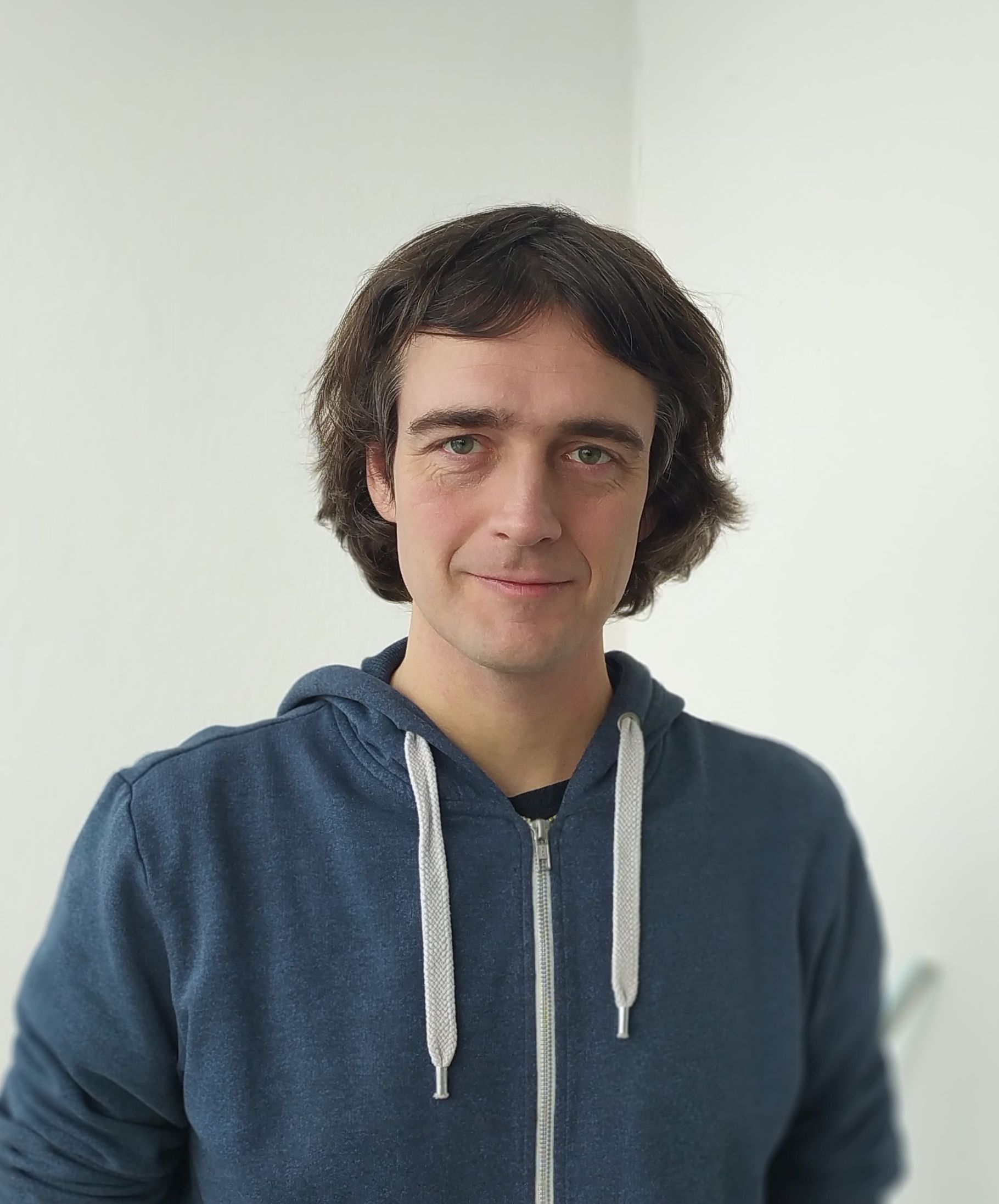
Doc. Ondřej Beran is the main guarantor of the study. He is interested in the theoretical preconceptions reflected in our ordinary talk about the actual issues “out there” (such as the Covid-19 pandemic, or climate crisis), and in the importance of particular examples. He tends towards mixing ethics, philosophy of language and related domains in a Wittgensteinian manner. Ondřej is Docent in Philosophy, he earned his PhD at Charles University in Prague. He was a visiting scholar at TU Dresden (DAAD) and at Penn State University (Fulbright scholarship).
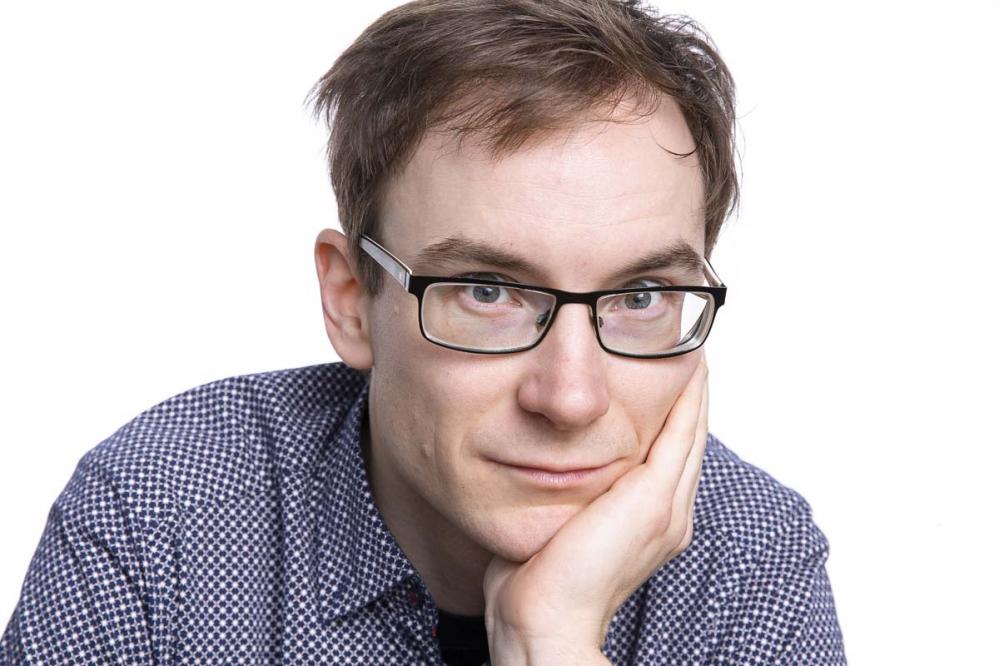 Dr. Matej Cíbik's research interests lie in the field of political philosophy and contemporary ethics. He writes on duties to oneself, the nature of moral obligations, and the relation between civil unrest, political authority and legitimacy. Matej received his PhD in Philosophy at Charles University in Prague. He was a visiting scholar at London School of Economics and a visiting fellow at Safra Centre for Ethics, Harvard University.
Dr. Matej Cíbik's research interests lie in the field of political philosophy and contemporary ethics. He writes on duties to oneself, the nature of moral obligations, and the relation between civil unrest, political authority and legitimacy. Matej received his PhD in Philosophy at Charles University in Prague. He was a visiting scholar at London School of Economics and a visiting fellow at Safra Centre for Ethics, Harvard University.
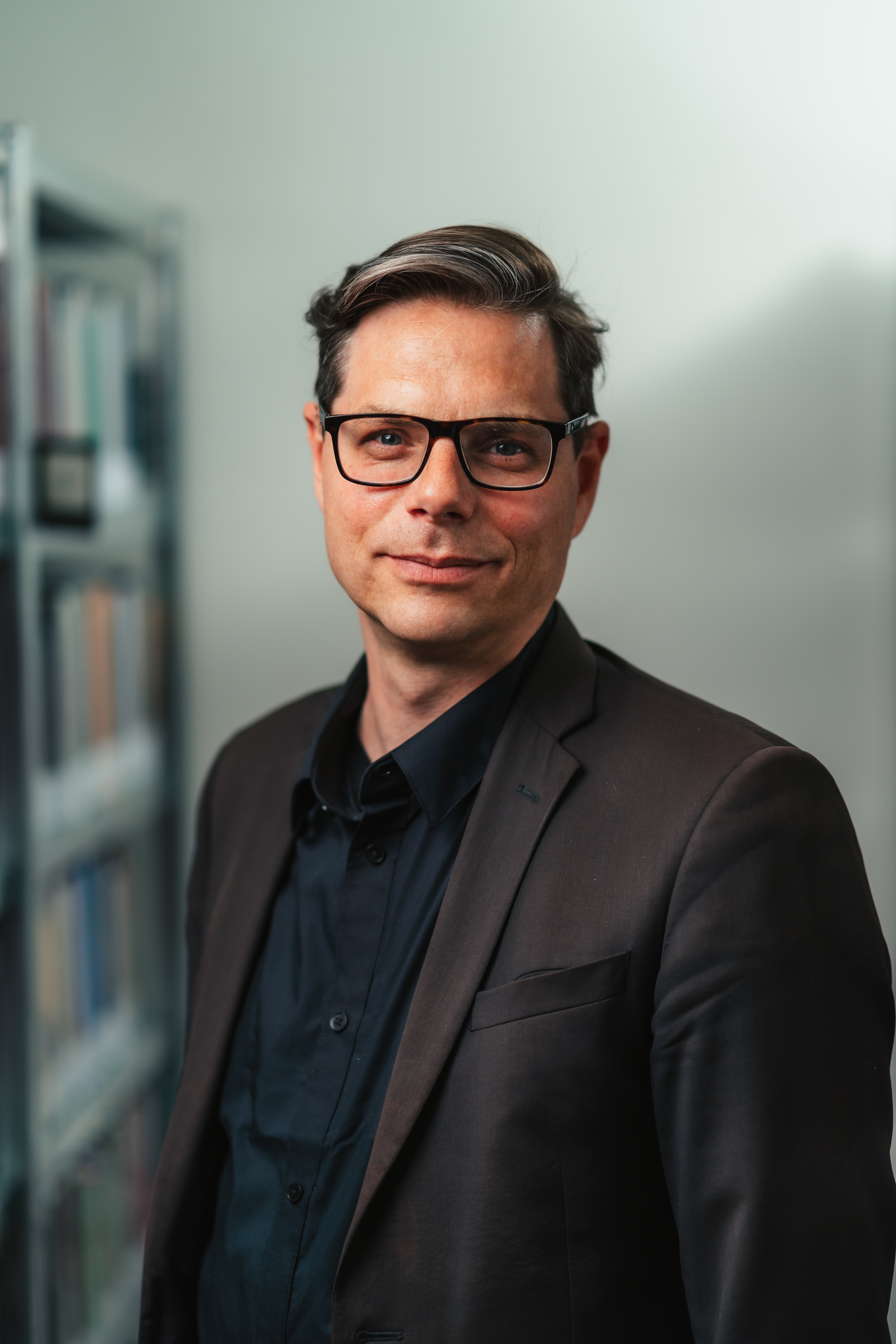 Doc. Niklas Forsberg is the Head of Research at the Centre for ethics. His areas of expertise are placed where logic and metaphysics, ethics, and aesthetics intersect. Central themes of Forsberg’s research are questions about what carries philosophical conviction and of how our most fundamental beliefs are to be reconsidered or even expressed and elucidated. Niklas is Docent in Theoretical Philosophy at Uppsala University, and a Docent in Philosophy at the University of Helsinki. Former positions include Erik Allardt Research Fellow, Helsinki Collegium for Advanced Studies, and Fulbright Visiting Researcher at the University of Chicago.
Doc. Niklas Forsberg is the Head of Research at the Centre for ethics. His areas of expertise are placed where logic and metaphysics, ethics, and aesthetics intersect. Central themes of Forsberg’s research are questions about what carries philosophical conviction and of how our most fundamental beliefs are to be reconsidered or even expressed and elucidated. Niklas is Docent in Theoretical Philosophy at Uppsala University, and a Docent in Philosophy at the University of Helsinki. Former positions include Erik Allardt Research Fellow, Helsinki Collegium for Advanced Studies, and Fulbright Visiting Researcher at the University of Chicago.
 Doc. Antony Fredriksson’s research addresses existential questions concerning the faculty of attention. The research is related to current attempts to elaborate an intersubjective understanding of perception: how we see, not only as individual subjects, but also through the help of others and shared practices. Antony received his PhD at Åbo Akademi University. Former positions include guest researcher at the Center for Subjectivity Research, University of Copenhagen, and visiting scholar at Centre for Studies in Practical Knowledge, Södertörn University.
Doc. Antony Fredriksson’s research addresses existential questions concerning the faculty of attention. The research is related to current attempts to elaborate an intersubjective understanding of perception: how we see, not only as individual subjects, but also through the help of others and shared practices. Antony received his PhD at Åbo Akademi University. Former positions include guest researcher at the Center for Subjectivity Research, University of Copenhagen, and visiting scholar at Centre for Studies in Practical Knowledge, Södertörn University.
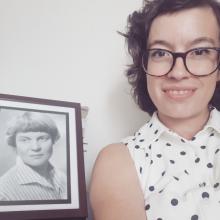 Dr. Lesley Jamieson's research is focused on the history of analytic philosophy, moral psychology, and the philosophy of educaion. She is interested in love and the moral senses of the concepts of 'realism' and 'attention', moral education and how we need to see others if we are to trust them for advice or guidance, and self-deception. Lesley received her PhD at Queen's University in Canada. Former positions include teaching fellow at Queen's University and Adjunct Professor at Carleton University.
Dr. Lesley Jamieson's research is focused on the history of analytic philosophy, moral psychology, and the philosophy of educaion. She is interested in love and the moral senses of the concepts of 'realism' and 'attention', moral education and how we need to see others if we are to trust them for advice or guidance, and self-deception. Lesley received her PhD at Queen's University in Canada. Former positions include teaching fellow at Queen's University and Adjunct Professor at Carleton University.
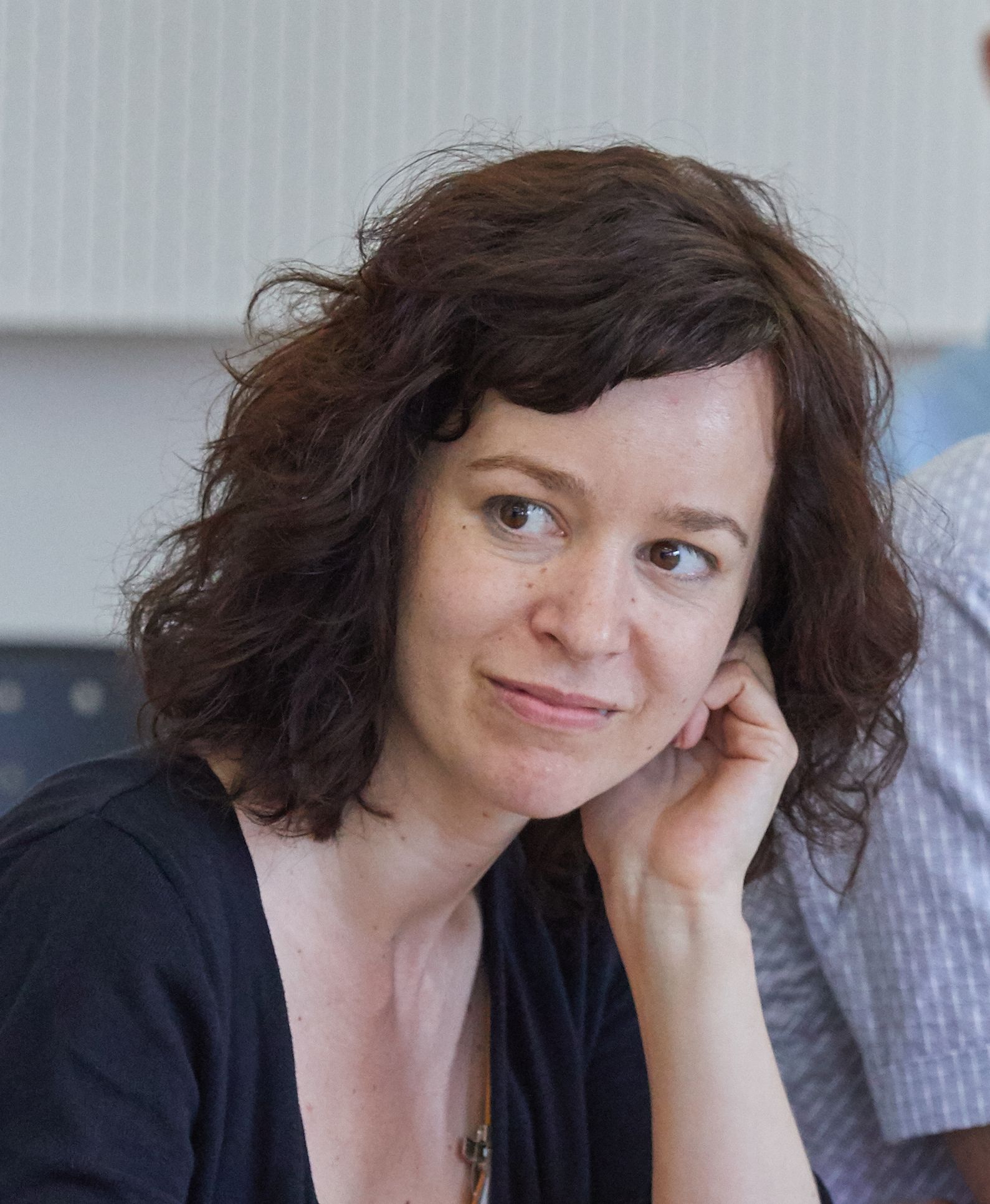 Dr. Kamila Pacovská is a Deputy Head of the Department and one of the main founding members of the Centre for Ethics. Her area of expertise is ethics and moral psychology. In particular, she is interested in analysing the psychology and motives of morally problematic behaviour, such as self-deception, bullying and bragging. Kamila received her PhD in Philosophy at Charles University in Prague. She was a visiting scholar at the University of Edinburgh and University of Vienna.
Dr. Kamila Pacovská is a Deputy Head of the Department and one of the main founding members of the Centre for Ethics. Her area of expertise is ethics and moral psychology. In particular, she is interested in analysing the psychology and motives of morally problematic behaviour, such as self-deception, bullying and bragging. Kamila received her PhD in Philosophy at Charles University in Prague. She was a visiting scholar at the University of Edinburgh and University of Vienna.
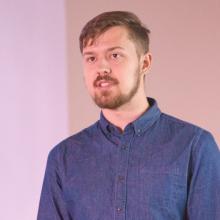 Dr. Vaclav Sklenář's research interests are modern and contemporary ehical and political philosophy, especially in the analysis of sources of normativity in ethical and political discourses. He has a particular interest in Hegel's writing on philosophical methodology. Vaclav is currently completing his PhD at Charles University, Prague where he was awarded his MA in 2019.
Dr. Vaclav Sklenář's research interests are modern and contemporary ehical and political philosophy, especially in the analysis of sources of normativity in ethical and political discourses. He has a particular interest in Hegel's writing on philosophical methodology. Vaclav is currently completing his PhD at Charles University, Prague where he was awarded his MA in 2019.
____________________________________________
(back)
What are the admission requirements?
The second round of applications: until 19th April 2026, Electronic Admission Application
Candidates must have completed, or be about to complete, a BA degree. The BA diploma must be presented by the date of enrolment at the latest.
Candidates must be proficient in academic English both spoken and written, at the level corresponding to CEFR B2+. The level of proficiency will be tested during admission interviews that will be conducted in English. Candidates can attach certificates of language proficiency to their applications.
The application includes, as an attachment, a sample of the candidate’s academic writing in English, of 1500-4000 words. This may be a part of their BA thesis, a final exam of a course they have passed, the proposed project of the MA thesis, a philosophical essay on the topic of their own choice, or a summary of a relevant philosophical text. The text should have the proper academic form (with references etc.)
The committee will evaluate the submitted documents; the quality of the sample writing is of central importance. The committee will assess the language standard as well as the candidate’s ability to deal with the topic in a clear and adequate way. Each candidate can get 20 points at maximum; only those who will have earned 10 or more points will be invited for the admission interview.
The following admission interview will be in English (it can be conducted online, via Zoom or a similar platform). The exam will take the form of a discussion about the submitted sample writing and the committee will be proving the candidates‘ language proficiency and their orientation in the concerned philosophical domain. The candidate can get 30 points at maximum from the interview; 10 for their language proficiency, 20 for the discussion of the text itself.
The evaluation of the results
Candidates can get 50 points at maximum (20 for the submitted writing, 30 for the interview) and the overall minimum required for admission is 25 points. Successful candidates are admitted based on their ranking; the maximum number of candidates admitted is 25.
The possible waiving of the admission exam
The Dean of the Faculty of Arts and Philosophy can waive the admission exams if the maximum number of submitted applications (including the admission fee paid) does not exceed the capacity of the program.
____________________________________________
(back)
How to apply?
Electronic Admission Application
Documents to be submitted with the application form:
1. Deadline for the delivery of Diploma and related documents to the study office: 17 June, 2026. See bellow for details.
2. Language exam certificate (optional, see above).
3. Sample of academic writing in English (1500-4000 words, see above).
You submit these documents jointly as one pdf attachment with the electronic application form (here). The application fee of 2000,- CZK (approx. 80 EUR) is payable by card or bank transfer, see instructions in the last step of electronic application.
___________________________________________
(back)
After you pass the admission interview: necessary documents
1. Visa - Please check your study visa requirements as soon as possible. For applicants from non-EU countries, these might be a condition of enrolment in the study. Minor fees apply. Contact the Mrs Fišerová or the International office to get assistance (see contacts below). Please mind that in order to apply for visa, you need the formal Admission Decision from our University, that can only be issued after we receive your Diploma related documents (see next point).
2. Diploma nostrification/verification - In order to complete the admission process and get the formal Admission Decision, you need to present the following documents concerning your Bachelor diploma by June 17th, 2026
- Certified copy of your Bachelor diploma and Diploma supplement. If the documents are not originally in Czech, Slovak or English, they must be translated into one of these languages and the translation must also be certified.
- If you are not a graduate from a Czech, Slovak, Polish, Hungarian or Slovenian university, you will need to have your foreign education formally verified. If you don't have the general nostrification, you can ask our Faculty to do the verification for the sake of your enrolment with us, there is a fee of 600 CZK. To apply for that, you will need the certified translation and copy of your Bc diploma and Diploma supplement and the "Certificate of accreditation" confirming that the foreign university has the right to give university education. Please contact the Study office to get assistance (see contacts below). More info about verification documents from different countries here.
- If you do not deliver the required documents in time, the study office will invite you for correction and completion. If you fail to eliminate the material defects of the application within the set deadline, he/she has not met the condition for admission and the admission procedure shall be stopped.
3. Before you start your study, you will be invited to get formally enrolled into study at the Study office (see contacts below). You cannot be enroled if you don't present your Diploma and related document (according to point 2 above).
____________________________________________
(back)
Timeline:
Deadline for application: 28 February, 202
Admission Exam Interviews: 16-20 March, 2026
Deadline for the delivery of Diploma related documents (see below): 17 June, 2026
The second round of applications: 19 April 2025
Second Round Exams Interviews: 1-5 June 2026 (concrete day to be specified later)
Enrolment: September, 2025 (concrete day will be specified later)
Start of study: 21 September, 2026 (please note that you might need to arrive earlier if you will be accommodated in the University dormitories)
Contacts for inquiries
Department of Philosophy and Religious studies
- Programme guarantor: Doc. Ondřej Beran
- Study coordinator: Doc. Antony Fredriksson
- Department Secretary: Renata Konfrštová
- officer for MA "Ethics and Political Philosophy": Michaela Fišerová
- inquiries related to study, application forms, enrolment and necessary documents, diploma verification and nostrification, credits, etc.
University International Department
- officer for international students and employees: Martina Votoupalová
- inquiries related to visas, health insurance, moving to the Czech Republic
